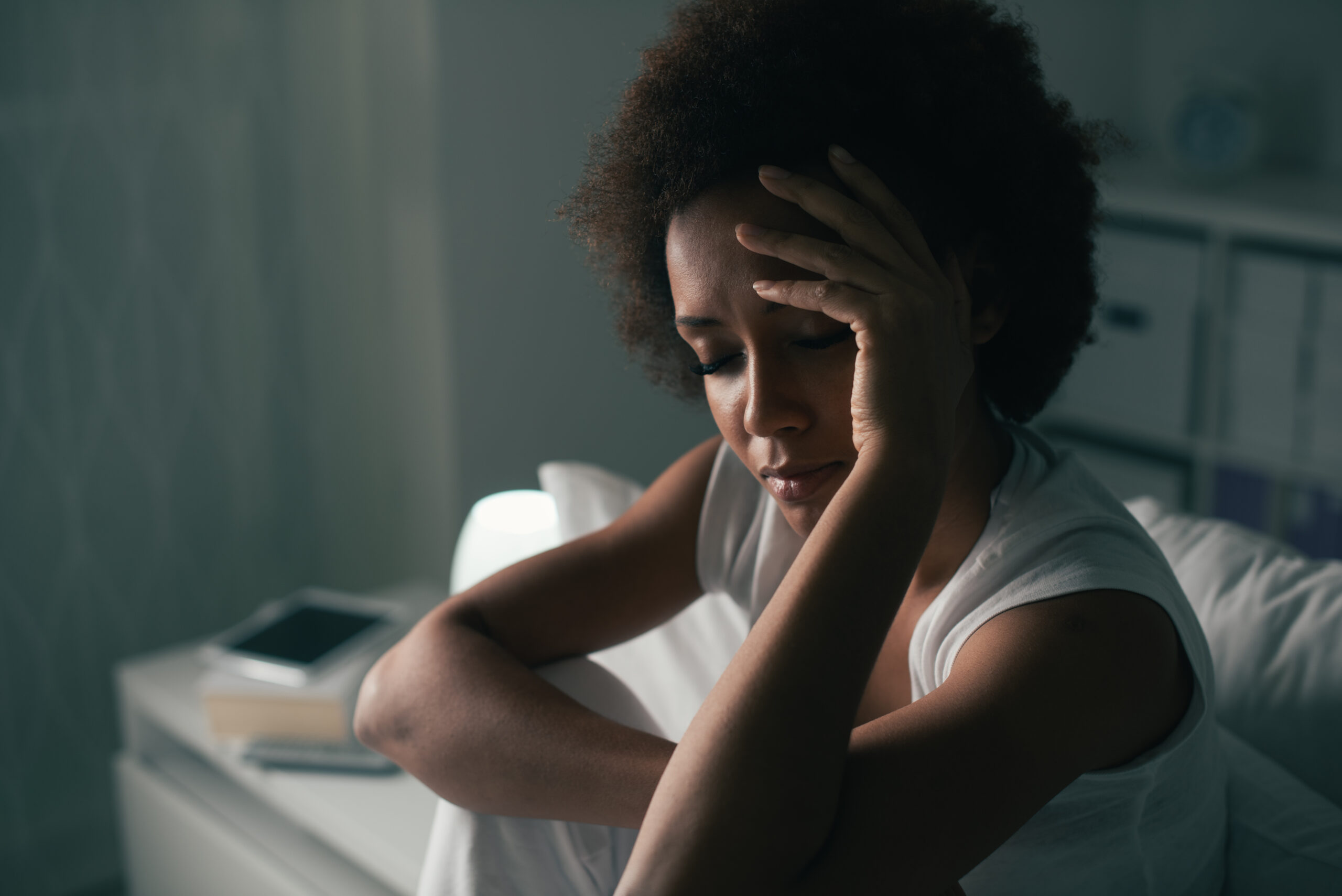Endometriosis is a painful, sometimes debilitating condition that can affect all women. Symptoms of endometriosis are the same regardless of race, and even non-Hispanic white women suffer for years before receiving an accurate diagnosis and proper treatment, if they ever do. Some women only know the actual cause of their pain once it progresses, or they look into the underlying cause of their infertility.
These problems are compounded for Black people by health disparities, socioeconomic factors, and much more. What are these unique challenges for African American women who have endometriosis, and how can the healthcare system and human services programs start meeting their needs?
What is Endometriosis?
Endometrial tissue is found in the lining of the uterus. It breaks down each month and is shed through regular menstrual periods. Endometriosis tissue is similar to the uterine lining but grows outside of it, usually on the ovaries, fallopian tubes, and pelvic cavity. It works as designed, thickening in preparation for possible pregnancy and breaking down. However, this tissue has nowhere to go. Over time, scar tissue can form, creating adhesions between reproductive organs, bowels, and other internal structures.
Symptoms of Endometriosis
The most common signs of endometriosis are very painful menstrual cramps, heavy or irregular menstrual periods, fatigue, painful bowel movements, and abnormal spotting or bleeding. These symptoms typically start in early adulthood, but many women report that they began experiencing them within their first few menstrual cycles.
Advanced endometriosis may lead to infertility, so following up with your providers about any abnormal symptoms or pelvic pain is important.
Endometriosis Risk Factors
You may be at higher risk of developing endometriosis if you have a family history or have been diagnosed with an abnormal uterus. Risk factors include menstrual periods that begin early, have a shorter cycle, or are abnormally heavy.
Related Conditions
There are many conditions related to endometriosis that may produce similar symptoms. Because there are so many, it may be challenging to determine which diagnosis is correct. However, you should work with your provider to ensure you find an accurate diagnosis early so you can begin treatment.
- Pelvic Inflammatory Disease (PID)
- Polycystic Ovary Syndrome (ovarian cysts)
- Uterine Fibroids
- Premenstrual Dysphoric Disorder
- Ovarian Cancer
Endometriosis Statistics
Endometriosis symptoms are severe and can be debilitating for many Black women, but it’s hard to understand just how big of a problem this is without looking at the statistics.
- Most women are diagnosed between the ages of 25 and35 (but girls as young as 11 have been reported with endometriosis)
- It is estimated that between 3-18% of women suffer from the condition
- Up to 50% of those with infertility are later diagnosed
- Up to 80% of women who report chronic pelvic pain may be experiencing symptoms
- Up to 40% of Black women diagnosed with PID actually had severe endometriosis
- Black women were, on average, 2.6 years older than those of other races when diagnosed
Challenges for African Americans
The statistics starkly contrast with those for women of other ethnic backgrounds. Black women find it harder to navigate the health system in many ways, and those with endometriosis suffer as they find their way.
Less Likely to be (Accurately) Diagnosed
Healthcare providers are less likely to diagnose endometriosis correctly for any woman for many reasons. The most common is that symptoms can mimic those of other conditions. This is also true for African American women, but it becomes more complicated when racial bias is applied. Many providers find it easier to brush off Black women’s health symptoms as something less severe or become judgemental, choosing instead to diagnose a sexually transmitted disease or infection (STI).
Other reasons providers may not diagnose endometriosis:
- They don’t believe a patient’s pain is real or is as severe as they describe
- Co-existing conditions may have overlapping symptoms of endometriosis
- Pelvic inflammatory disease (PID) or another STI may be easier to “diagnose.”
- A misconception that endometriosis is less common in Black women
Nadine’s Story
One example of endometriosis pain going undiagnosed for far too long is that of Nadine Dirks. She shared her story in 2020 with Medical News Today for their Through My Eyes series. Her painful menstrual cramps, heavy menses, back pain, and other symptoms of endometriosis were dismissed as nothing more than those of a hypochondriac. If she was given a diagnosis at all, they were extremely biased, and most were made without a physical exam or any testing. These diagnoses included everything from sexually transmitted diseases to pelvic infections.
Pain medications and directions for self-care at home were prescribed. It wasn’t until 2014, when the painful symptoms became unbearable, that hospital providers found a mass on her right ovary, that she underwent emergency surgery. The amount of scar tissue was extensive, affecting her uterus, fallopian tubes, ovaries, and even her bowels. At that time, she was finally diagnosed with stage 4 endometriosis.
Limited Access to Quality Healthcare Options
To diagnose endometriosis early, it’s essential to find quality healthcare early as well. This usually means preventative care like a regular pelvic exam and PAP smear that may also help detect cervical and other types of cancer. Once diagnosed, follow-up care is essential to manage symptoms and refer to specialists for pain management or a surgical procedure. Even holistic care, like an anti-inflammatory diet, can help manage or prevent endometriosis pain.
Unfortunately, access to experienced healthcare providers and advanced clinics for reproductive medicine is limited for many African American women due to location, income, and more. Those that do have access often face racial or gender bias. Some primary care providers may even stigmatize speaking about menstrual cycles or resist referring to a specialist. With so many health inequities a woman may face, it’s understandable that finding a definitive diagnosis may seem impossible.
Access to timely, quality care may also result in more complications for those who do undergo a surgical procedure to help remove scar tissue caused by endometrial tissue. According to Dr. Bradley, quoted by the Cleveland Clinic, this is often due to limited access to but also delays in care that allows the condition to worsen before treatment options are available.
Long-Term Costs of Delayed Care
Endometriosis commonly causes fertility problems, especially when untreated, and may put you at a higher risk of pregnancy complications. If it’s undiagnosed, your provider may not know to watch for signs of these complications, like early miscarriage, ovarian cyst rupture, or bowel perforation. Because it can take years to diagnose endometriosis, many women don’t know they have it until they have suffered through infertility or multiple miscarriages.
Pain medication can lead to other health issues over time, especially if using over-the-counter medications. Long-term, non-steroidal anti-inflammatory drugs, or NSAIDS, can affect the liver and kidneys. Stronger prescription pain meds could cause other side effects or pose more serious threats like addiction. Even then, there’s no guarantee these pain medications will manage abdominal pain and other worsening symptoms of endometriosis.
The financial costs are also staggering, and a 2020 study published in Advances in Therapy proved that those with longer delays in diagnosis spent thousands more in overall healthcare costs. Many women continue to pay for doctor’s visits, trips to the emergency department, and diagnostic testing only to find no answers for their severe pain. Medication costs, whether over-the-counter or prescription, add up. The frustration of paying these bills without answers as to why add up too.
Kyla’s Story
Kyle Canzater knew precisely what was wrong when she was 12 and suffered from severe symptoms with her first menstrual cycle. Even though she knew her body well and had researched thoroughly, she couldn’t get her painful endometriosis diagnosed until 13 years later. When discussing her experience with the Endometriosis Foundation of America, she suggests that everyone experiencing painful periods not give up hope, not accept an answer they disagree with, and always lean on their support system.
What Black Women Need for Endometriosis Care
Although POC experience the severe pain of this condition the same way as women of every other race, being heard and finding treatment options is much more difficult. Whether it’s surgery, birth control, hormone therapy, or other treatments, Black women should have access to the health care needed to treat endometriosis effectively.
While some changes to the system have been made, they are happening slowly. Other issues still need to be addressed, whether through new government policies, local awareness groups, or changes within healthcare organizations.
These are just some of the things that would help African American women with an endometriosis diagnosis:
- Awareness of the disparities Black women face in reproductive healthcare
- Ability to speak openly about these disparities as well as the struggles of living with endometriosis pain
- Better access to medical and holistic treatment options within local neighborhoods
- Making in vitro fertilization more affordable and accessible
- More culturally-sensitive care offered within reproductive health centers, especially within Black neighborhoods or in other low-income areas
Black Women’s Health Matters
Although PMS can be a pain to live with, menstrual periods should never be physically painful or increasingly uncomfortable. If you are experiencing any of the common signs of endometriosis, contact your primary care provider or see a reproductive medicine specialist for an evaluation. Treating it could be as simple as taking birth control. Remember, you matter, your health matters and Black Health Matters is helping to raise awareness about conditions such as this so that Black women are heard and treated, no matter their diagnosis.
Diagnosed with Endometrial Cancer? Compare your options here at XpertPatient.









